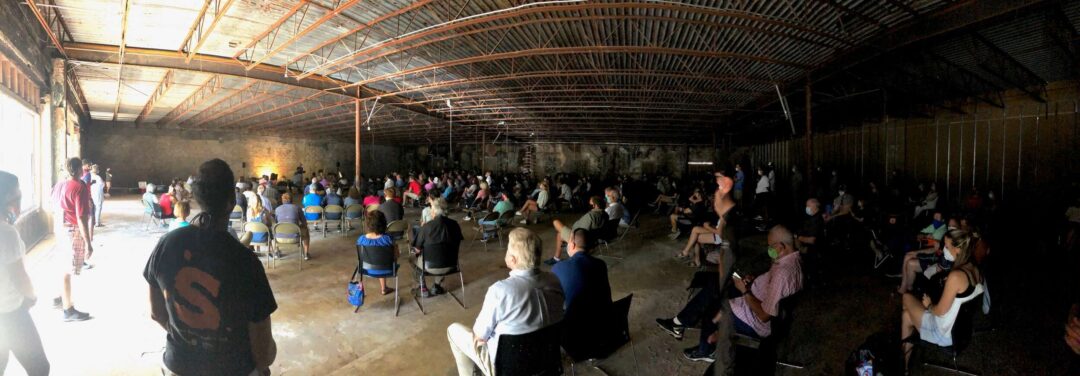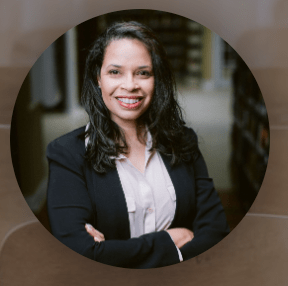I grew up surrounded by images of the church-driven civil rights movement. My uncle was one of the Brown v. Board of Education families, and my parents integrated the faculties of Baltimore County public schools, relying on the last issue of the Green Book to keep us safe on family road trips well into the 1970s. My family made sure I knew all the stories—including that of Bloody Sunday.
The images of state troopers beating the marchers on the Edmund Pettus Bridge displayed America’s worst and best. The force of the baton that fractured John Lewis’ skull cracked hearts and propelled the civil rights movement into the world’s consciousness, setting the stage for the 1965 Voting Rights Act, which secured the right of every American to vote unhindered—including me.
John Lewis felt like one of the family—the sharecropper, seminarian, and activist turned determined politician. Like most American heroes, he was a complexity of opinions and actions writ large, his stand for life simultaneously heroic and inconsistent. But at his finest moment, Lewis paid a high price to help claim America’s promise that “all men are created equal . . . endowed by their Creator with certain unalienable rights,” noble words written by another inconsistent American two centuries before.
Such are the frailties and promises of humanity rolling together through time, like the caisson carrying the body of a simple sharecropper’s son as it solemnly moved across the Edmund Pettus Bridge last week.
Today Is Not Yesterday
The civil unrest we see today echoes that complexity and churns in our hearts afresh. Weeks before Lewis’ funeral, as peaceful protests marched and cities burned, I called saints in closed countries who were well acquainted with revolutions, cultural divisions, and, perhaps most important, with an isolated church in the midst of dwindling cultural credibility.
“What are we supposed to be doing right now?” I asked them. Their responses were strikingly similar: “Pray. And find the people of Kingdom prayer.”
Saints around the world are mobilizing in concerted Kingdom prayer that disrupts all temporal tribes and interests, calling down the power of heaven for a true Revolution. With each phone call, I discovered pockets of Christians around the world in this posture of deliberate Kingdom prayer:
“When Jesus tells his followers to wait, it is no less than a cease and desist order. It is as though He is telling us: ‘Whatever you are doing . . . STOP!’ Jesus issued a warning that we dare not move ahead without calibrating our plans with His: “Apart from me you can do nothing” (John 15:5). If you go ahead without waiting, you go ahead alone.”**
So, three weeks before John Lewis crossed the Edmund Pettus Bridge one final time, my search for people of Kingdom prayer led me to the son of another Selma sharecropper: Pastor Alton Hardy, who did something truly radical in these days of churning hearts. Rather than calling a protest march or political rally, Pastor Hardy called a prayer meeting.
Hardy is 54 years old. Born in 1966, he grew up in the same exploitative system as John Lewis—a system that lasted well into the 1980s, crushed his father’s spirit under its oppressive weight, and left his birth family stuck at the intersection of racism, classism, and rural poverty.
Hardy held the prayer meeting in a dilapidated Dollar Store that is now the gathering place for his church plant, Urban Hope Community Church in Fairfield, Alabama. The building is just up the road a piece from Selma and the Edmund Pettus Bridge. Two rented generators powered a temporary sound system, a few naked bulbs, and a handful of large fans to circulate the heat inside. With concrete rubble swept to the edges to accommodate rented folding chairs, one could almost imagine a new temple made of living stones rising up out of the old temple of commerce.
Four hundred people answered Hardy’s call to pray. Some of them represented networks of intimate, reconciled relationships forged in private over many years; others were complete strangers. After weeks of quarantine, protests, and watching civil unrest, many of us felt stripped of pretense and willing to face a new season for Christianity in America on different terms . . . on Kingdom terms.
Hardy preached in the darkness about the forces that have kept the church fractured for hundreds of years, all the while reminding us that the purpose of our unity in Christ is to show God’s glory to a dying world—something the American church has failed to do time and time again (Genesis 1:27; Psalm 86:9; Isaiah 60:21; Romans 11:36; 1 Corinthians 6:20; 10:31; Revelation 4:11). At some point his preaching became a broken cry: “God! Why did the government have to do what the church should have done . . . together? Why are we here again, still divided, after fifty years of marching, and protest, and reconciliation measures? We can’t do it God! God, we’re stuck! We want to show your glory as one!”
The four hundred answered in quiet assent and prayerful intercession. It was a tacit acknowledgment that we wanted to be remembered by future generations as a unified Kingdom people who showed God’s glory without the constraints of temporal politics, tribe, or culture.
In the long shadow of the Edmund Pettus Bridge, we fought with our heads bowed. Mutual submission, mutual regard, compassionate listening, and Spirit-wrought mutual trust marked our time in communion with God. In my little group, we begged for the birth of a new day for the church in America, for a body of believers impacting their earthly cultures while free from cultural captivity.
A New Day Demands a New Movement
Turning to prayer can feel pedantic in a world that treats the term “radical” so loosely. The New Testament depicts nothing so radical as a Kingdom-centered body of believers grabbing hold of the glory of God and saturating their communities with it. We’ve been conditioned to believe that prayer must be accompanied by action, but prayer in God’s economy is action. What are we to think when even Christian voices dismiss radical Kingdom prayer as a necessity for moving the church forward in our most difficult conversations?
We are in a very different day, church. Even as the struggle for human rights and a just democracy continues in this country, there will always be another cultural moment ahead. Despite lurching signs of maturity, we remain a tepid, divided, and misfocused church facing increasing cultural hostility. We cannot continue with a “business as usual” prayer life. Kingdom prayer will empower a Kingdom-focused church that cuts across time, ethnicity, and geography – better than any history book or diversity program. It will mold us into a more unified people, ready to stand against the grain of earthly cultures and political movements for the sake of displaying the glory of God to a decaying world.
In this climate where Christian martyrdom and persecution are co-opted for temporal battles of liberty (the conservative far-right) and justice (the progressive far-left), Kingdom prayer will shape us into a people who resist conformity and are willing to suffer not merely for the sins or victories of the American experiment, but for the promises of Kingdom sureties.
The next major bridge that American saints cross will be cultural. What compromises will we allow that betray our commitment to Christ? For this new moment, we need supernatural forces to topple our personal and cultural idols, to transform us into an “other-cultural, other-political” community that indicts corrupt political, cultural, and ideological institutions—for the glory of God.
**From Prayer Revolution, by John Smed. Learn more about global Kingdom prayer through the ministry resources available at Prayer Current.
Prayer Requests:
- Pray right now that the Holy Spirit will reveal your personal political, cultural, and tribal idols.
- Pray right now that God would give you the strength and courage to tear those idols down.
- Pray right now that the Holy Spirit will fan into flame the embers of Kingdom prayer around the world.












